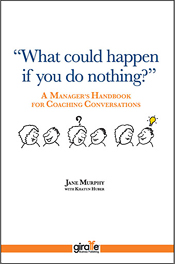Joining the Conversation
 Today’s business professionals are becoming actively engaged in one or more of the online social media. Some may just be dipping their toe into the water, while others were early adopters, and daily messaging is now part of their quotidian routine. Many believe this involvement is motivated by a desire to join a community of interest. In business, that could be a LinkedIn HR Group, a Twitter “hashtag” for a posted leadership forum, or a visit to an innovation thought-leader’s Facebook fan page. Others seek out professional social networks to share resources, learn about new methodologies and tools, and follow big-picture trends and issues.
Today’s business professionals are becoming actively engaged in one or more of the online social media. Some may just be dipping their toe into the water, while others were early adopters, and daily messaging is now part of their quotidian routine. Many believe this involvement is motivated by a desire to join a community of interest. In business, that could be a LinkedIn HR Group, a Twitter “hashtag” for a posted leadership forum, or a visit to an innovation thought-leader’s Facebook fan page. Others seek out professional social networks to share resources, learn about new methodologies and tools, and follow big-picture trends and issues.
But recent research indicates a wholly unexpected motivator for people’s involvement in social media—conflict. A research team at PARC (Palo Alto Research Center) has looked at how social network systems succeed in harnessing the “wisdom of the crowd.” (http://www.irishtimes.com/newspaper/finance/2010/1210/1224285184861.html) PARC studied Wikipedia in particular and found that conflict drives productivity among the contributors who are editing, changing or expanding on someone else’s prior offering.
This inclination to jump into a conversation to either counter or build on what others have said got me thinking. Coaching is also a way to tap into someone’s thinking and help them expand their perspective. Coaching conversations challenge individuals to question assumptions, to think more deeply, to consider other points of view, and to consider entirely new frameworks and options.
There can be a beneficial tension in what the PARC team labels conflict. Healthy conflict is one symptom of a high-performance team. It’s that desire to contribute, to improve and build on the discussion, to be heard and valued, and ultimately to help meet a challenge.
If the robust dialog and healthy conflict of the social networks are the lure to the “connected,” it’s good to remember that coaching and a coaching orientation offer the same benefits in addressing real business challenges in the workplace.
What parallels do you see between social networking and coaching?
If you found this post helpful, check out “About the Book” on this blog, and order yourself a copy of “What could happen if you do nothing?” A manager’s handbook for coaching conversations.








